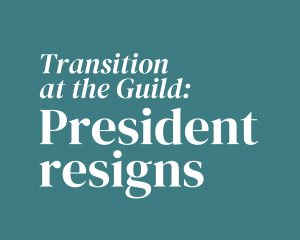A push from within the NTEU for Gender Affirmation Leave has picked up steam within the National Tertiary Education Union (NTEU), the national union of university staff. A key proponent within the Queensland NTEU, Amy Sargeant, is a Doctoral student and sessional tutor at QUT.
I caught up with Amy to talk about gender affirmation leave in Australia, the NTEU, and how students can become involved.
As the national convenor of the Queer Unionists in Tertiary Education (QUTE), the casual staff representative for QUT at the NTEU, and an all-round trans icon, Amy is especially qualified to talk Gender Affirmation Leave.
‘Gender Affirmation Leave is a period of leave – we’re aiming for thirty days – to be introduced at universities around the country,’ Amy said. ‘It’s a period of paid leave for all staff who need to take time off work for health needs related to their gender transition, with annual renewal ideally. Different agreements made at different universities.’
The NTEU has this year recommended all their branches across the country to take this fight to universities.
But unionists like Amy are looking to make Gender Affirmation Leave a mandatory claim across the country.
‘We’re trying to get that grassroots groundswell going,’ Amy elaborated.
‘Of course, universities and workplaces generally don’t just give away leave for no reason. They’re not just going to give you free time off work, they’re going to put up a fight before that happens.
‘There was very little take-up nationally for Gender Affirmation Leave before the union started taking action – and when I say the union, I mean all of the staff who make up the union. It’s not just people in a branch office or a national office who do that stuff, it’s activism, grassroots activism taking place at many universities around the country which has resulted in in-principal agreements being signed at CQU (Central Queensland University) and UTAS (University of Tasmania).
‘This means management have agreed to Gender Affirmation Leave at the table, they may have put it in writing on a piece of paper, but they are not legally obligated to make it happen until it goes through ratification with the Fair Work commission. That’s the case at those two universities and this is just the beginning. We’re really taking this thing off right now.’
Amy hopes this momentum will build, and that the list of Australian universities in favour of Gender Affirmation Leave will continue to grow. She puts this rapid uptake in interest for Gender Affirmation Leave down to the sector’s ability to organise.
‘We’re very lucky in the tertiary sector to have a union that is willing to fight for support willing to make [Gender Affirmation Leave] a recommended claim. Especially in the current climate, which is a climate of hatred surrounding trans and gender diverse people, where statistics relating to assault, violence, and suicide are rising rather than going down. You could say that the fight for gender affirmation leave is a part of a concerted effort to work towards change. We realise that change towards queer liberation doesn’t just happen by default, we need to fight for it to make it happen.’
But this shouldn’t be seen as an expense to universities, or any workplace that implements Gender Affirmation Leave.
‘Trans people enrich workplaces,’ Amy says. ‘Trans people, even if they need to take leave at some point or points in their lives to receive medical care, enrich workplaces. The burden is not on workplaces that have trans workers, but on places who are missing that crucial perspective, that crucial lived experience. Trans people enrich workplaces and we need to support that.’
‘There is a narrative that if an institution does too much work on queer issues, that turns people off. But in fact, I think we’ve seen overwhelmingly so far that we can make the union bigger and stronger by taking action on things like gender affirmation leave, because we can use it as an opportunity to reach out to queer staff at our universities who haven’t yet joined the union. They’ll see things like this happening and think, okay hell yeah, I want in on this, this is worthwhile, so it’s some of that meaningful praxis that can turn people on.’
‘Words on a piece of paper are meaningless unless they are enforced.’
‘There are two simultaneous phases to the campaign. The first part is getting those words on a piece of paper, getting into agreements at universities around the country, and once it’s there, the second phase of the campaign is an enforcement campaign to ensure staff can use it without repercussion.’
‘So, if a trans academic was having trouble trying to access Gender Affirmation Leave and there were barriers being put up, they probably wouldn’t want to burnt their bridges in the sector by taking university management to a tribunal and going through that hell, especially if you are a sessional academic. We want to ensure that trans and gender diverse staff can use that Gender Affirmation Leave without repercussion.
‘The work is so precarious so you don’t want to seem like you aren’t going to be there for 5 weeks. It needs to be safe for trans and gender diverse staff too access that leave.’
Amy also pointed out that many staff members at QUT are also students, and that they have more strength by joining their union. To students and staff, she said to, ‘keep your ear to the ground because there may be actions taking place on campus in regards to Gender Affirmation Leave.’ Current union members can join QUTE (Queer Unionists In Tertiary Education), the NTEU Queer caucus, to get updates on the campaign.
This push is one of the first concerted push by a national Australian union for to redress this specific inequity and trans and gender diverse university activists are hoping it will lead the way for similar collective action in other sectors.
Many staff activists are also pushing for a number of related protections for queer staff, including an enforceable right to change of university documents, a right to safe bathroom access and more.
readers can find more information about the gender affirmation leave movement, here.








